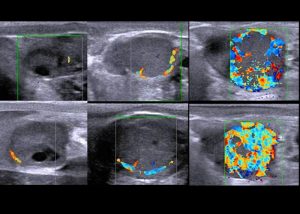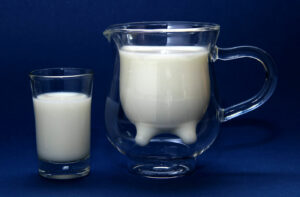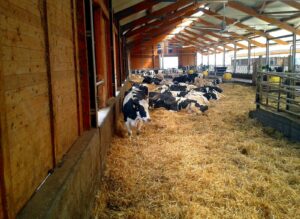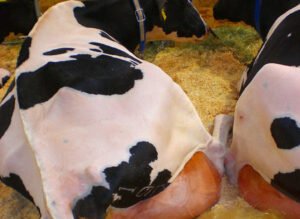Fernando Díaz
Soybean meal, canola meal, and corn distillers’ grains are good sources of protein for dairy cows. Since they have different rumen undegradable protein (RUP) content and amino acid profile, feeding diets that include two or three protein sources is the best strategy for covering amino acids requirements in high producing cows.
A recent metanalysis including 10 scientific publications conducted by the Dairy Knowledge Center’s team (Sánchez-Duarte et al., 2019) did not find difference in production performance and efficiency between cows fed canola meal- or soybean meal-based diets. Both, soybean meal (30% of protein) and canola meal (43%) are low in RUP content, thus they use to be blended with high RUP ingredients such as distillers’ grain (55%).
University of California researchers evaluated the impacts of replacing soybean meal with canola meal in lactating cow diets containing corn dried distillers’ grains with solubles (DDGS). The study was conducted in a 5000-cow dairy near Hanford, California, USA, and the researchers (Gauthier et al., 2019) fed three different diets. All diets contained 7.5% of DDGS in a dry matter basic (DM), canola meal and incremental amounts of soybean meal:
- 13.0% canola meal and 0% soybean meal.
- 8.2% canola meal and 3.5% soybean meal.
- 3.5% canola meal and 7.0% soybean meal.
Protein contents in DDGS, canola and soybean meal were 33.1, 41.9, and 52.3% DM, respectively (table), and the diets were formulated to be isonitrogenous (17.5% DM protein).
| Nutrient |
DDGS |
Canola Meal |
Soybean Meal |
| Dry Matter (DM) % |
95.0 |
93.1 |
93.7 |
| Organic Matter (% DM) |
94.3 |
92.4 |
92.5 |
| Crude Protein (% DM) |
33.1 |
41.9 |
52.3 |
| NDF (%DM) |
26.6 |
30.8 |
8.7 |
| ADF (%DM) |
7.0 |
20.9 |
4.9 |
| Lignin (%DM) |
6.4 |
11.1 |
0.4 |
The results of this study were reported in Animal Feed Science and Technology. Dry matter intake was not affected by the different protein meal combinations (28.5 kg/day), but the authors found differences in production performance. Milk (44.6 kg/day), fat (1.60 kg/day), and true protein yield (1.32 kg/day) were similar in cows fed the diets with more canola meal (13.0 and 8.2% canola); however, there was a clear reduction in production performance (2.3, 0.10, and 0.07 kg/day of milk, milk fat, and milk protein) in the cows receiving the diet with less canola meal (3.5% colza). In addition, while concentration of lysine in plasma was unaffected by diets, methionine concentration was lower in cows fed the diet with more soybean meal.
In conclusion, according to the results of this work, feeding canola meal in combination with DDGS may be a better strategy than feeding soybean meal. Comparing with soybean meal, lysine concentration is slightly lower (6.1 vs. 5.5% protein) and methionine content is 54% greater in canola meal (1.3 vs. 2.0%). Therefore, lower methionine supply in the high soybean diet may have caused the reduction in production performance.
Reference
H. Gauthier, N. Swanepoel, P.H. Robinson. 2019. Impacts of incremental substitution of soybean meal for canola meal in lactating dairy cow diets containing a constant base level of corn derived dried distillers’ grains with solubles. Animal Feed Science and Technology 252: 51–63.











